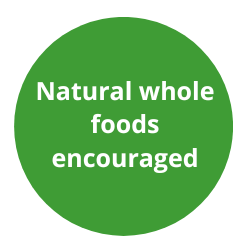
Going Sugar Free for 30 days is a challenge. Living with Muscular Dystrophy is much harder!
What Sugar Free September
When 1 - 30 September
How Cut the sweet stuff by removing your favourite treat such as chocolate bars, lollies, cakes, soft drinks, or by completely removing added sugar or free sugars from your diet throughout the month of September.
Why To provide vital practical services and programs for kids, adults and families facing neuromuscular conditions, including:
- Access to better treatment options
- Stronger community ties
- Educational resources and support coordination
- Camps for kids
- Retreats for families and young adults
- Peer Connect online groups
- Advocacy and more!
The rules of Sugar Free September
Embrace your challenge and conquer it your way!
- You can cut out your favourite sweet treats or why not take it a step further and completely remove added sugar or free sugars from your diet throughout the month of September?
- There are no rigid rules or restrictions holding you back! Sugar Free September is your challenge and you get to choose your level of commitment. Whether you’re ready to eliminate all added sugar, gradually reduce your sugar intake, or simply cut back a little bit, every step counts.
- If you’re feeling overwhelmed by the challenge, keep in mind that progress is achieved step by step. Take a gradual approach by reducing one thing at a time, and you'll be on your way to successfully conquer your Sugar Free September challenge.
- And guess what? Whole foods like fruits and vegetables are highly encouraged and allowed!

Resources, tips and guides
You're not alone! We've got resources and perks galore to help you through your Sugar Free September challenge.

Fitness videos available

Tasty and healthy recipes

Expert advise, resources and tips from our partner That Sugar Movement

Facebook Community Group for tips, inspo and connection to other challengers

Weekly motivation emails to keep you on track

E-cookbook, meal planning and challenge guides

Fundraising tips and resources + downloadable templates
In case you we're wondering...

Alcohol
Not all beverages are created equal, but some alcohol is low in sugar and is allowed during your challenge, if you choose. For example, dry white and red wine, gin, vodka and beer are all low in sugar. We'll have lots of resources to help you make informed and healthier choices during the challenge.
Remember though, alcohol can make it harder to resist temptations, and should be consumed in moderation, if at all. It is up to you whether you include low-sugar alcohol in your challenge or go alcohol free.
Need a break?
We encourage everyone to go the whole month sugar free, but understand that there may be an event you need to attend, or just need a short break.
That's why we offer a Sweet Release Pass that allows you to take a short break from your challenge and enjoy a sweet treat (or two). Just ask a friend to donate the $37 pass, or buy one for yourself!


The truth about sugar
Most of us are unaware of how much “hidden” sugar we are consuming on a daily basis. According to the Australian health survey, we consume 22kg of free sugars each year, equating to around 14 teaspoons of sugar each day. We may not add a lot of sugar to our foods and drinks, but that doesn’t mean we’re not over-consuming the sweet stuff, as it is present in over 70% of packaged food and drink.
By drawing attention to our sugar intake, Sugar Free September's goal is to educate and inspire everyone to make healthier food choices that last all year.
What is the link between neuromuscular conditions and sugar?
Apart from advocating healthy lifestyle choices for people living with a neuromuscular condition, there is no medical link between sugar and muscle wasting conditions.
Try cutting sugar from your day and you’ll soon realise that it’s really tough...but not as tough as living with a neuromuscular condition!
Here at Muscular Dystrophy NSW, we love people who challenge themselves and use their strengths to empower and support others. By offering a challenge that promotes a healthy lifestyle, we aim to empower you too.
Thank you for making a difference!





